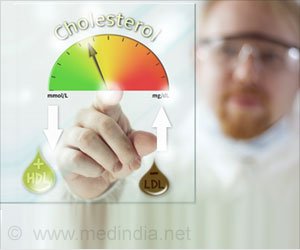LipidSeq Effective in Diagnosing Genetically Based High Cholesterol

“Previous studies showed little yield in doing genetic testing,” said Hegele, who is also an endocrinologist at London Health Sciences Centre, a Lawson Health Research Institute scientist and a world-leading expert in lipid metabolism disorders. “This new method shows there is a benefit, especially when you can add the extra step of medically selecting those with a familial history of the disease.”
The study, published online today in the journal Arteriosclerosis, Thrombosis, and Vascular Biology, used the LipidSeq method on 313 patients with LDL cholesterol levels above 5.0 mmol/L who had been referred to the lipid clinic at LHSC. From those patients, LipidSeq was able to identify a genetic mutation in 67 percent.
Advertisement
Fifty-four percent were single gene mutations, and the other 13 percent were polygenic DNA variants, meaning they were a combination of multiple bad genes inherited together. The study also showed that the percentage of individuals with an identified genetic component increased as cholesterol levels in the patient increased.
LipidSeq has already been licensed for use in the U.S. to help clinicians identify patients with genetically-based high-cholesterol in order to guide drug prescriptions. Hegele says that while statins, a typically prescribed class of drugs for high cholesterol, work well in the majority of the population, they don’t bring cholesterol down to target levels in those with severe genetic-forms of the disease.
Source: Eurekalert
Source link
#LipidSeq #Effective #Diagnosing #Genetically #Based #High #Cholesterol



